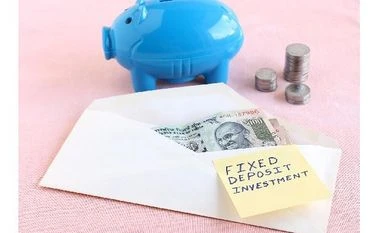When retail investors wish to earn better returns than those offered by bank fixed deposits (FDs), one instrument they turn to is company FDs. However, in the current environment of high credit stress, they need to be very selective when opting for these products.
Company FDs are unsecured instruments, offered by both manufacturing companies and non-banking financial companies. “Returns offered by company FDs can be 100-250 basis points higher than those offered by bank FDs across tenures,” says Navin Chandani, chief business officer, BankBazaar.
The simplicity of the product makes it attractive to investors who prefer fixed returns over market-linked ones, as offered by debt mutual funds, which can fluctuate.
These instruments do carry risks. “They are unsecured. If the company undergoes liquidation, these investors will be paid last,” says Vinay Taluja, executive vice-president and head-product solutions, Bajaj Capital.
Before investing in a company FD, do look up its credit rating. “But in these times, when ratings go from ‘AAA’ to ‘junk’ within days, just checking the credit rating will not suffice. Also evaluate the company’s financials — its debt-to-equity ratio, its interest-coverage ratio, and its cash flows,” says Mumbai-based financial planner Arnav Pandya.
Investors also need to think carefully about the tenure of the instrument. Generally, a longer-tenure instrument offers a higher return. Match your investment horizon with the tenure of the FD. If you invest for too short a period, you could face reinvestment risk in a declining rate scenario. On the other hand, if you invest for too long a period, you run the risk that the economic cycle may turn and the company may find it difficult to repay you. “We usually advise investors to opt for one-three year company FDs,” says Taluja.
Nowadays, many small finance banks (SFBs) offer higher returns than traditional large banks, going up to 8.75-9 per cent. Investing in their FDs is an option that investors may consider. “Deposits of up to Rs 1 lakh are insured by the Deposit Insurance and Credit Guarantee Corporation (DICGC), a subsidiary of the Reserve Bank of India (RBI),” says Chandani.
However, these banks have been in operation for only a short period, and their credit practices are still evolving. So, investors should diversify their fixed-income investments across products instead of relying too heavily on FDs of SFBs. Adds Pandya: “The RBI has never allowed a large bank to fail in India. But it has not been tested whether it will step in to save a small bank. So, one needs to be careful.”
The higher returns offered by SFBs also come with investment limits. “Some SFBs may offer a higher rate of interest only if you invest more than, say, Rs 1 lakh. Or, sometimes they may offer a higher rate up to a certain amount and a lower rate beyond that. Company FDs have fewer such restrictions. If they do, those limits are so high, say Rs 1 crore, that they are unlikely to affect retail investors,” says Taluja.
Another fixed-income option that conservative investors may consider is non-convertible debentures (NCDs). Broadly speaking, if both a company FD and an NCD have a similar rating, the former is likely to give higher returns. But secured NCDs are safer than company FDs, and the claims of investors in the former will be treated as superior. However, NCDs are not available throughout the year. Investors also need a demat account with a brokerage house to invest in them.
In the current environment, investors should not get lured just by the higher returns offered by a company FD. “Avoiding a default should be main goal at present,” says Pandya.
Unlock 30+ premium stories daily hand-picked by our editors, across devices on browser and app.
Pick your 5 favourite companies, get a daily email with all news updates on them.
Full access to our intuitive epaper - clip, save, share articles from any device; newspaper archives from 2006.
Preferential invites to Business Standard events.
Curated newsletters on markets, personal finance, policy & politics, start-ups, technology, and more.
)